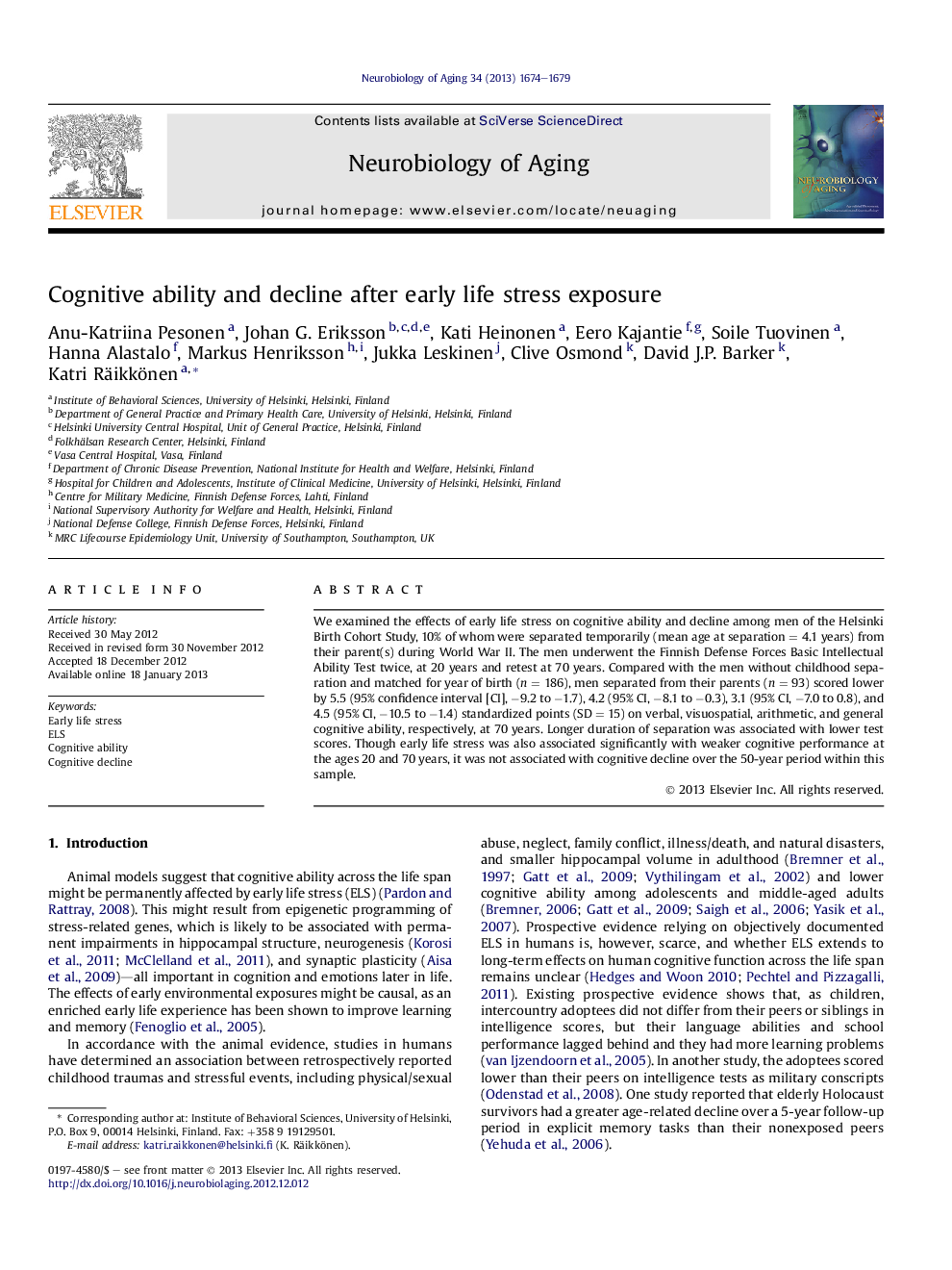| Article ID | Journal | Published Year | Pages | File Type |
|---|---|---|---|---|
| 6807456 | Neurobiology of Aging | 2013 | 6 Pages |
Abstract
We examined the effects of early life stress on cognitive ability and decline among men of the Helsinki Birth Cohort Study, 10% of whom were separated temporarily (mean age at separation = 4.1 years) from their parent(s) during World War II. The men underwent the Finnish Defense Forces Basic Intellectual Ability Test twice, at 20 years and retest at 70 years. Compared with the men without childhood separation and matched for year of birth (n = 186), men separated from their parents (n = 93) scored lower by 5.5 (95% confidence interval [CI], â9.2 to â1.7), 4.2 (95% CI, â8.1 to â0.3), 3.1 (95% CI, â7.0 to 0.8), and 4.5 (95% CI, â10.5 to â1.4) standardized points (SD = 15) on verbal, visuospatial, arithmetic, and general cognitive ability, respectively, at 70 years. Longer duration of separation was associated with lower test scores. Though early life stress was also associated significantly with weaker cognitive performance at the ages 20 and 70 years, it was not associated with cognitive decline over the 50-year period within this sample.
Related Topics
Life Sciences
Biochemistry, Genetics and Molecular Biology
Ageing
Authors
Anu-Katriina Pesonen, Johan G. Eriksson, Kati Heinonen, Eero Kajantie, Soile Tuovinen, Hanna Alastalo, Markus Henriksson, Jukka Leskinen, Clive Osmond, David J.P. Barker, Katri Räikkönen,
